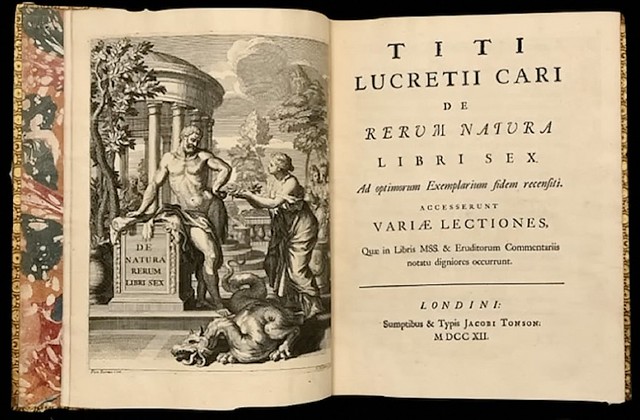El poeta y filósofo atomista romano Lucrecio es un importante teorizador de la evolución. En su poema De rerum natura, y como parte de una argumentación anti-teleológica, formula de modo polémico la teoría de lo que Stephen Jay Gould habría de llamar la "exaptación": la tesis de que los órganos no se han desarrollado con vistas a desempeñar sus actuales funciones, pues éstas han derivado colateralmente. Extraemos algunas consecuencias desde el punto de vista de un evolucionismo narratológico.
Texto completo:
El evolucionismo de Lucrecio: Exaptación y retrospección
Ibercampus (July 4, 2019) Posted 12 Jul 2019
English Abstract:
Lucretian Evolutionism: Exaptation and Retrospection
The Roman poet and atomistic philosopher Lucretius is a major evolutionary theorist. In his poem De rerum natura, as part of an anti-teleological argument, he polemically formulates the theory of what Stephen Jay Gould has called 'exaptation': the notion that organs have not evolved with a view to their present functions, which are colaterally derived. Some consequences for an narrativist evolutionary science are derived from an analysis of this passage.Suggested Citation:
Garcia Landa, Jose Angel, El evolucionismo de Lucrecio: Exaptación y
retrospección (Lucretian Evolutionism: Exaptation and Retrospection)
(July 4, 2019). Ibercampus (July 4, 2019). Available at SSRN: https://ssrn.com/abstract=3415888
—oOo—




No hay comentarios:
Publicar un comentario
Se aceptan opiniones alternativas, e incluso coincidentes: